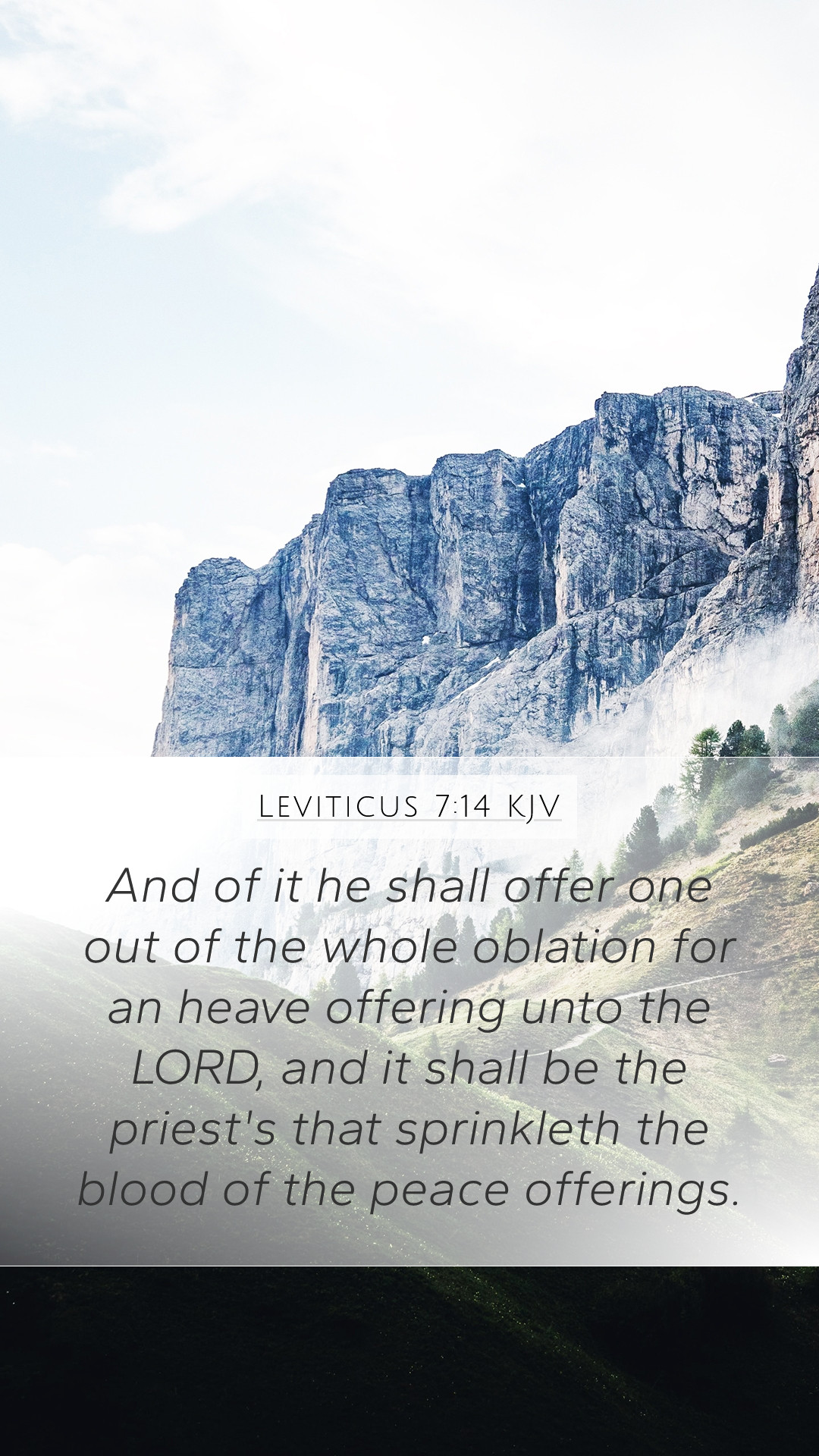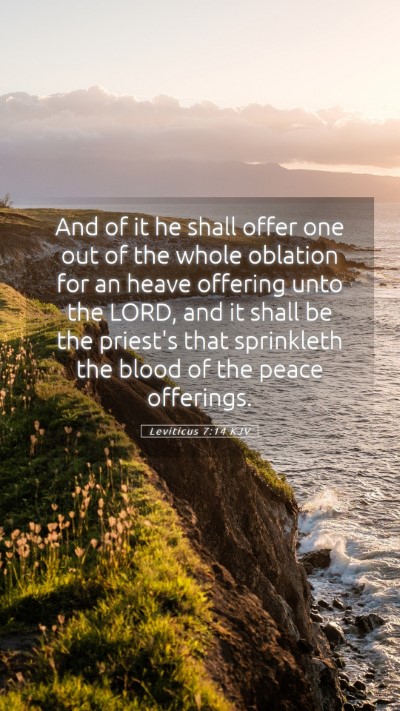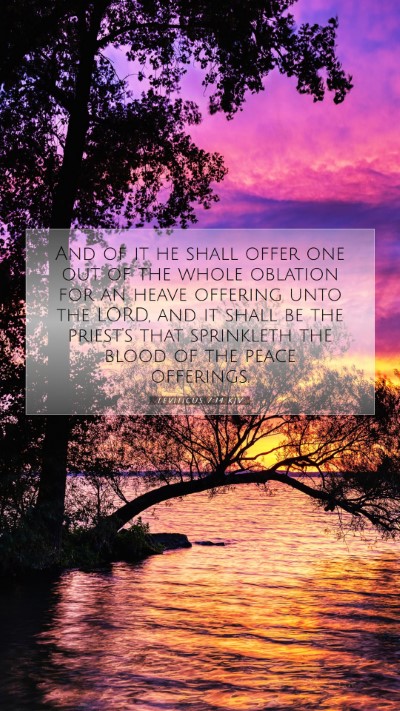Bible Verse Meaning and Interpretation of Leviticus 7:14
Leviticus 7:14 states: "And of it he shall offer one out of the whole oblation for an heave offering unto the LORD, and it shall be the priest's that sprinkleth the blood of the peace offerings." This verse provides crucial insights into the sacrificial practices in ancient Israel, particularly concerning peace offerings. The following analysis combines interpretations from respected public domain commentaries, focusing on exegesis and the theological implications for understanding Scripture.
Context and Historical Background
This verse is situated within Leviticus, a book that outlines the laws governing Israelite worship and practices. It specifically addresses provisions concerning offerings, which were integral to the covenant community's relationship with God. The peace offering is associated with expressing gratitude, seeking atonement, or fulfilling vows, marking it a significant aspect of worship.
Key Themes in Leviticus 7:14
- Peace Offerings: The reference to peace offerings illustrates the communal aspect of worship, where the individual offering partakes in a shared meal with the priest, symbolizing fellowship with God.
- Priestly Role: The verse emphasizes the priest's unique role in mediating the relationship between God and the worshiper, highlighting the importance of sacrificial rituals.
- Oblation and Heave Offering: Understanding the terms oblation and heave offerings is key to biblical exegesis, as they reflect obedience and acknowledgment of God’s sovereignty over the worshipper's life.
Bible Verse Commentary Insights
Matthew Henry's Commentary
Matthew Henry emphasizes that the offerings made were an important part of worship and that peace offerings symbolize the worshiper's reconciliation and communion with God. He comments on how the heave offering represents a portion given for the service of the priests and serves as a testimony of the worshipper’s gratitude for God’s blessings.
Albert Barnes' Commentary
Albert Barnes notes that the peace offering involved a shared meal, underscoring the joyful aspect of worship. He elaborates that the sprinkling of blood by the priest symbolizes the transfer of the worshiper's sin and the assurance of God's acceptance of the sacrifice, establishing a covenant relationship.
Adam Clarke's Commentary
Adam Clarke points out the significance of the heave offering as an acknowledgment of God's provision. He explains how the shared aspect of this offering points to the community's role in worship, reinforcing the idea that individual acts of worship are also communal expressions of faith.
Application of Leviticus 7:14 in Modern Context
Understanding Leviticus 7:14 provides relevant applications in contemporary Christian life. Modern believers can reflect on the significance of gratitude, communion with others in the context of faith, and the importance of sharing God's blessings with those in spiritual leadership.
Bible Study Insights
This verse serves as a valuable study topic in Bible study groups and online Bible study platforms. Exploring its implications can deepen one's understanding of sacrificial worship and its relation to Jesus' ultimate sacrifice, which fulfills the law and establishes a new covenant.
Cross References
- Exodus 29:27-28: Discusses the portions of the offering designated for the priests.
- Leviticus 3:1-5: Details the procedures for peace offerings.
- 1 Corinthians 10:18: Discusses partaking in the sacrifice and communion with God.
Conclusion
In conclusion, Leviticus 7:14 serves as an essential verse for understanding the nature of offerings in the Old Testament and their implications for New Testament believers. The verse offers insights into worship practices, the role of priests, and the importance of community in faith. For those seeking detailed Bible verse explanations and interpretations, this analysis helps illuminate the meaning and application of Scripture.


